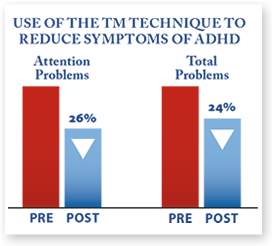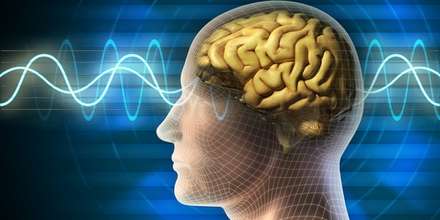Living with ADHD can often feel like trying to find stillness in the middle of a hurricane—distractions, racing thoughts, and restlessness come in waves. While medication and therapy remain foundational treatments, more people are exploring natural, holistic options to manage ADHD symptoms. One practice rising to the surface is Transcendental Meditation (TM).
But how exactly does Transcendental Meditation help ADHD? Can a few minutes of silent mantra repetition really make a dent in hyperactivity, impulsivity, and scattered focus?
Let’s explore the growing connection between Transcendental Meditation and ADHD, backed by science and real-life stories.
What Is Transcendental Meditation?
Transcendental Meditation is a technique rooted in Vedic tradition, popularized in the West by Maharishi Mahesh Yogi in the 1950s. Unlike other mindfulness or breath-focused techniques, TM involves silently repeating a personalized mantra for 15–20 minutes, twice a day.
It’s effortless, non-religious, and doesn’t require clearing your mind—ideal for individuals with ADHD, who may find traditional meditation frustrating.
Why TM May Be Effective for ADHD
People with Attention-Deficit/Hyperactivity Disorder often experience overstimulation of the nervous system. Their minds race, attention is fragmented, and emotional regulation is challenging. TM, through its deeply restful and calming approach, may help reduce this overarousal and restore balance.
Key potential benefits of Transcendental Meditation for ADHD:
- Reduced anxiety and restlessness
- Improved focus and concentration
- Enhanced sleep quality
- Greater emotional control
- Increased self-esteem and confidence
Scientific Research on Transcendental Meditation and ADHD
Several peer-reviewed studies have examined the effects of Transcendental Meditation on ADHD symptoms, especially in children and adolescents:
- Grosswald et al. (2008): A 3-month pilot study involving middle-school students with ADHD found significant improvements in attention, working memory, and organizational skills. (Full study PDF)
- Travis & Grosswald (2011): EEG scans showed that TM practice helped increase brain coherence and prefrontal cortex activity in children with ADHD—critical for focus and decision-making. (Research summary)
- Systematic Review (2023): A meta-analysis of meditation-based interventions concluded that Transcendental Meditation and similar techniques can reduce hyperactivity and improve attention in both children and adults. (PubMed Central Article)
Real-Life Stories: How TM Is Helping People with ADHD
Chris Martin, Coldplay’s Lead Singer
Chris has spoken publicly about managing ADHD and depression with meditation. In interviews, he credits Transcendental Meditation for helping him feel “grounded and less reactive.”
Jessica, Mother of Two with ADHD
“I was skeptical at first. I thought, ‘How is sitting with my eyes closed going to help me remember to pay the bills or stop yelling at my kids?’ But within a few weeks, I felt more centered. TM didn’t cure my ADHD—it gave me breathing room.”
Teen Testimony from a School Program
In a video shared by the David Lynch Foundation, one high school student practicing TM said, “I feel like I can actually sit down and finish my homework without my mind jumping all over the place. That never used to happen.”
A Student’s Story: Embracing TM for ADHD
For most of his school life, 13-year-old Alex* felt like he was falling behind before the day even began.
He described his mind as a “carousel of thoughts that never slowed down.” From the moment he sat in his seat, distractions would flood in—someone tapping their pencil, the buzz of a light, a memory from a video game the night before. It wasn’t that he didn’t want to learn. In fact, Alex was deeply curious, brimming with creativity. But the structure of the classroom felt impossible to keep up with. Instructions blurred. Assignments were forgotten. He was labeled “unmotivated” or “disruptive,” but beneath the surface was a kid desperate to focus—he just didn’t know how.
When his school in Washington, D.C., introduced a pilot program offering Transcendental Meditation (TM) to students with learning challenges, including ADHD, Alex’s mother was cautiously hopeful. They had tried multiple interventions—medication, tutoring, behavior charts—but the progress was uneven. TM seemed almost too simple. Sit quietly? Repeat a sound? Twice a day? How could that possibly compete with the chaos in his mind?
But within a few weeks of practicing TM with a certified teacher, something shifted.
“At first, I thought it was kind of weird,” Alex admitted. “I didn’t think it would do anything. But I started feeling different. Not sleepy, but… calm. Like my head had space in it, finally.”
His teachers noticed it too. He began raising his hand more often in class—not impulsively, but thoughtfully. He finished tasks he previously abandoned halfway through. His reading comprehension improved, and he even started turning in homework without being reminded ten times.
Alex’s mom, watching from the sidelines, called the change “miraculous, but not in a magical way—more like he finally had a way to pause, breathe, and just be without fighting his brain all the time.”
TM became a cornerstone in his daily routine. Mornings started with a 15-minute meditation in the school’s quiet room. Then again in the afternoon. The practice gave him a predictable rhythm, something ADHD often disrupts. He described it as “like clearing the cache in my brain,” allowing him to show up for his schoolwork and his life with more intention.
What’s most striking isn’t just the academic improvement. It’s the emotional transformation.
“I used to feel bad all the time,” Alex said. “Like I was always messing up or being too much. Now, I feel like I can just… exist without being in trouble.”
That kind of internal shift is hard to measure on a report card, but for kids like Alex—and families like his—it’s everything.
*Name changed for privacy
These personal accounts highlight how Transcendental Meditation is improving ADHD symptoms in real, meaningful ways.
TM vs. Traditional Meditation for ADHD
Not all meditation styles are created equal for ADHD brains. Practices like mindfulness or breath awareness often require intense focus—which can be difficult for individuals with attention issues.
TM, by contrast, is:
- Effortless and non-directive
- Doesn’t require concentration
- Allows the mind to wander and return gently
- Supported by research specific to ADHD
This makes TM a more accessible form of meditation for ADHD individuals.
Should You Try Transcendental Meditation for ADHD?
While Transcendental Meditation isn’t a replacement for ADHD medication or therapy, it may be a powerful complementary tool. It’s especially useful for managing stress, improving focus, and helping both children and adults regulate their emotions.
Important note:
Before starting TM, especially for children, it’s best to consult with a healthcare provider and work with a certified TM instructor to ensure proper technique and support.

Final Thoughts: Peace in the Middle of the Storm
ADHD often feels like living in fast-forward. For many, Transcendental Meditation offers a pause, a breath, a few minutes of stillness to anchor the chaos. Whether it becomes a lifelong practice or just one piece of a broader wellness plan, TM may be exactly what the ADHD mind needs—a chance to reset and refocus.
If you’re searching for a natural, science-backed approach to help manage ADHD symptoms, exploring Transcendental Meditation might just be worth your time—and your silence.
Frequently Asked Questions
Is Transcendental Meditation safe for children with ADHD?
Yes, many studies have involved children and adolescents with ADHD and found TM to be safe and beneficial. Always consult with your child’s doctor before beginning.
How long does it take to see results from TM?
Many people report feeling calmer and more focused within a few weeks of consistent practice, though experiences vary.
Where can I learn TM?
TM must be learned from a certified instructor. You can find local centers through the official Transcendental Meditation website.




















